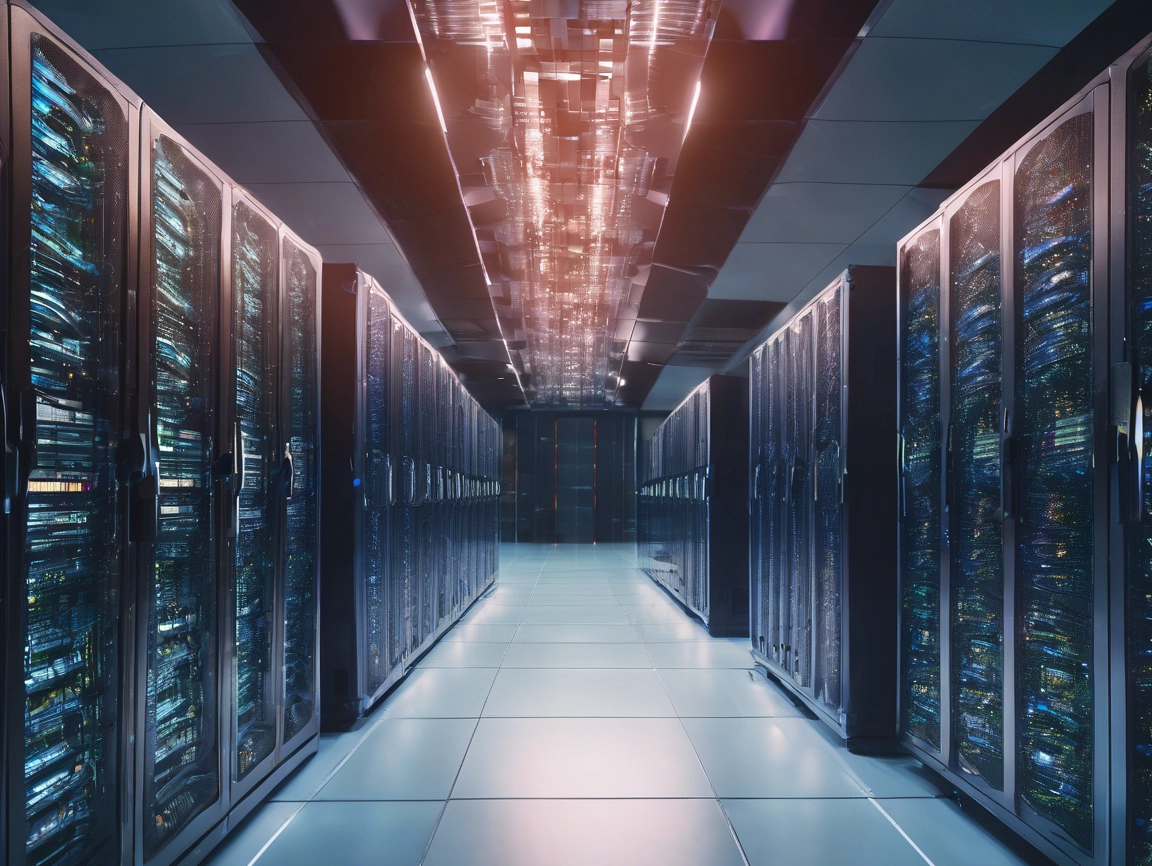
MCP Servers and AI: Revolutionizing Intelligent Computing for Modern Businesses
In the rapidly evolving landscape of artificial intelligence, MCP servers (Model Context Protocol servers) are emerging as a game-changing technology that’s transforming how businesses deploy, manage, and scale their AI applications. As organizations increasingly rely on AI-driven solutions, understanding the role of MCP servers in modern AI infrastructure has become crucial for maintaining competitive advantage.
What Are MCP Servers?
MCP servers represent a standardized protocol designed to enable seamless communication between AI models and various data sources, tools, and applications. Think of them as intelligent middleware that acts as a bridge, allowing AI systems to access and interact with external resources in a controlled, efficient manner.
Unlike traditional server architectures, MCP servers are specifically engineered to handle the unique demands of AI workloads, including:
- Dynamic context management for large language models
- Real-time data integration from multiple sources
- Secure API connections to enterprise systems
- Scalable resource allocation for varying AI demands
The AI Integration Challenge
Before MCP servers, businesses faced significant challenges when implementing AI solutions:
Common Pain Points
- Fragmented data access across different systems
- Complex API integrations requiring extensive custom development
- Security vulnerabilities when connecting AI models to sensitive data
- Scalability issues as AI usage grows across the organization
- Maintenance overhead for multiple point-to-point connections
These challenges often resulted in delayed AI projects, increased costs, and suboptimal performance – issues that MCP servers are designed to address.
How MCP Servers Transform AI Implementation
1. Streamlined Data Access
MCP servers create a unified interface for AI models to access diverse data sources, from databases and APIs to real-time streams and cloud storage. This standardization dramatically reduces development time and complexity.
2. Enhanced Security
By implementing robust authentication and authorization mechanisms, MCP servers ensure that AI models can safely interact with enterprise systems without compromising sensitive data or creating security vulnerabilities.
3. Improved Performance
Optimized for AI workloads, MCP servers include features like intelligent caching, load balancing, and resource optimization that enhance AI application performance and reduce latency.
4. Simplified Maintenance
Rather than managing multiple custom integrations, organizations can maintain a single, standardized MCP server infrastructure that supports all their AI applications.
Key Benefits for Businesses
Cost Reduction
By standardizing AI integrations, MCP servers reduce development time by up to 60% and ongoing maintenance costs by 40%, according to industry studies.
Faster Time-to-Market
Pre-built connectors and standardized protocols mean new AI applications can be deployed weeks or months faster than traditional approaches.
Enhanced Reliability
Centralized management and monitoring capabilities ensure consistent performance and easier troubleshooting across all AI implementations.
Future-Proof Architecture
As new AI models and tools emerge, MCP servers provide a flexible foundation that can adapt to changing technology requirements.
MCP Servers in Action: Real-World Applications
Enterprise AI Assistants
Modern AI assistants leverage MCP servers to seamlessly access:
- Customer relationship management (CRM) systems
- Enterprise resource planning (ERP) databases
- Real-time inventory and logistics data
- Knowledge management systems
Intelligent Business Automation
Companies use MCP servers to connect AI models with:
- Document management systems
- Workflow automation tools
- Financial reporting platforms
- Supply chain management systems
Data Analytics and Insights
MCP servers enable AI-powered analytics by connecting to:
- Data warehouses and lakes
- Real-time streaming data
- IoT sensor networks
- External market data sources
Technical Architecture of MCP Servers
Core Components
- Protocol Layer: Standardized communication protocols for AI model interactions
- Security Layer: Authentication, authorization, and encryption mechanisms
- Data Access Layer: Unified interface to various data sources and APIs
- Management Layer: Monitoring, logging, and resource allocation capabilities
Integration Patterns
- Request-Response: Synchronous data retrieval for immediate AI processing
- Event-Driven: Asynchronous processing triggered by data changes
- Streaming: Real-time data flow for continuous AI analysis
- Batch Processing: Scheduled data transfers for periodic AI tasks
Implementation Best Practices
1. Start with Clear Objectives
Before implementing MCP servers, define specific AI use cases and success metrics to ensure the infrastructure aligns with business goals.
2. Design for Scalability
Plan for growth by implementing horizontal scaling capabilities and load balancing from the beginning.
3. Prioritize Security
Implement comprehensive security measures, including:
- End-to-end encryption
- Role-based access controls
- Audit logging
- Regular security assessments
4. Monitor Performance
Establish comprehensive monitoring and alerting systems to ensure optimal performance and quick issue resolution.
Challenges and Considerations
Technical Complexity
While MCP servers simplify AI integration, they require specialized expertise to implement and maintain effectively. Organizations should consider partnering with experienced AI consultants to ensure successful deployment.
Initial Investment
The upfront cost of implementing MCP server infrastructure can be significant, though the long-term ROI typically justifies the investment through reduced development and maintenance costs.
Change Management
Transitioning from existing integration patterns to MCP servers requires careful planning and staff training to ensure smooth adoption.
The Future of MCP Servers and AI
As artificial intelligence continues to mature, MCP servers are evolving to support:
Advanced AI Capabilities
- Multi-modal AI: Supporting text, image, audio, and video processing
- Federated Learning: Enabling distributed AI training while preserving data privacy
- Edge Computing: Extending MCP capabilities to IoT and edge devices
Industry-Specific Solutions
Specialized MCP server configurations for:
- Healthcare and medical AI applications
- Financial services and regulatory compliance
- Manufacturing and industrial automation
- Energy and utilities management
Integration with Emerging Technologies
- Blockchain integration for secure, transparent AI operations
- Quantum computing preparation for future AI advancement
- 5G and edge computing optimization for real-time AI applications
Getting Started with MCP Servers
Assessment Phase
- Evaluate current AI initiatives and integration challenges
- Identify data sources and systems requiring AI connectivity
- Assess security requirements and compliance needs
- Define success metrics and ROI expectations
Planning Phase
- Design MCP server architecture based on specific requirements
- Select appropriate technologies and platforms
- Develop implementation timeline and resource allocation
- Establish governance and security policies
Implementation Phase
- Deploy MCP server infrastructure in a controlled environment
- Migrate existing AI integrations gradually to minimize disruption
- Test thoroughly with pilot applications
- Train staff on new processes and tools
Why Choose Professional AI Consulting
Implementing MCP servers and AI infrastructure requires deep technical expertise and industry experience. Working with experienced AI consultants ensures:
- Proper architecture design tailored to your specific needs
- Efficient implementation that minimizes business disruption
- Best practices adoption based on proven methodologies
- Ongoing support for optimization and expansion
At Digital Fractal Technologies, our team of PhD-level AI experts has extensive experience helping organizations successfully implement artificial intelligence and machine learning solutions that drive real business value.
Conclusion: Embracing the MCP Server Revolution
MCP servers represent a fundamental shift in how businesses approach AI infrastructure. By providing a standardized, secure, and scalable foundation for AI applications, they enable organizations to unlock the full potential of artificial intelligence while reducing complexity and costs.
As AI adoption accelerates across industries, businesses that invest in robust MCP server infrastructure will be better positioned to:
- Deploy AI solutions faster and more efficiently
- Scale their AI capabilities as requirements evolve
- Maintain competitive advantage through superior AI performance
- Adapt quickly to new AI technologies and opportunities
The question isn’t whether to adopt MCP servers, but how quickly your organization can implement this transformative technology.
Ready to Transform Your AI Infrastructure?
Don’t let complex AI integrations hold back your business growth. Digital Fractal Technologies specializes in helping organizations implement cutting-edge AI solutions, including MCP server architecture and artificial intelligence and machine learning solutions tailored to your specific industry needs.
Our team of AI experts, including PhDs in machine learning and computer vision, has successfully delivered AI projects for government agencies, energy companies, and construction firms across Alberta and beyond.
Contact Digital Fractal Technologies today for a consultation on your next AI project launch. Let us help you harness the power of MCP servers and AI to drive innovation, reduce costs, and accelerate your digital transformation journey.
Get your free AI consultation: Contact us now to discuss how MCP servers can revolutionize your AI infrastructure and deliver measurable business results.
Digital Fractal Technologies – Your trusted partner for AI consulting, digital transformation, and innovative technology solutions in Alberta and across Canada.

